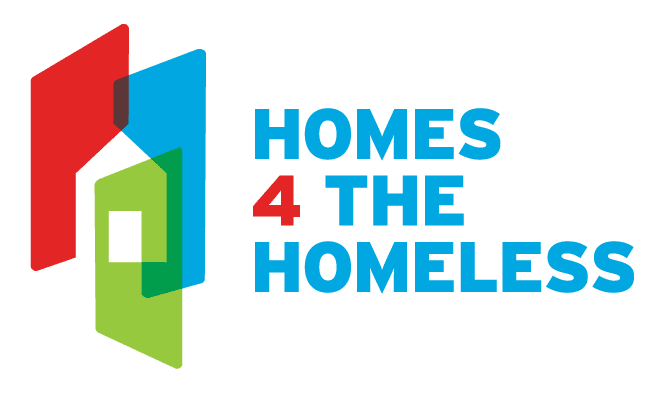Advocates Warn the Decision Removes One of the Last Accountability Tools Protecting Unhoused People from Escalating Brutality
Unsheltered homeless people are over-policed and under-protected, a combination that often leads to police brutality. In the wake of an uptick in anti-homeless sentiments and laws, the Trump administration’s recent removal of a nationally recognized police misconduct database could have devastating consequences for members of the unhoused population.
It is a blistering winter day. Ice and snow fall over a homeless encampment where witnesses gather in horror around a young Native unsheltered homeless man who was shocked and tasered five times. In the aftermath of the attack, he is lying limp on the cold, wet ground.
His crime? Engaging in life-sustaining activities while enduring the endless throes of being homeless. He is alone in the graphic viral video footage that circulates on the internet, but his circumstance is no anomaly. It is commonplace.
In Chicago, on a brisk November day, five police officers team up to kick a defenseless homeless man repeatedly in the head. It happens again in Phoenix. Two law enforcement representatives tasered, punched, and violently arrested Tyrone McAlpin, a deaf homeless man with cerebral palsy who was the victim of a crime, but assumed to be the perpetrator.
Being Homeless is a Crime in the United States. 205,000 Homeless People Are Arrested Each Year.
The violence described above is the kind of treatment members of the homeless community have come to expect from officials who have vowed to protect and serve. Unsheltered homeless people exhibit an elevated risk of coming into contact with the police.
As anti-homeless legislation continues to climb, experts claim approximately 205,000 unhoused people are booked in jails across the country every year. San Diego County court records suggest that homeless people are 514 times more likely to be arrested than people who are housed.
Repeated contact with the police doesn’t just increase the risk of being fined and arrested for being homeless. But it also increases the risk of becoming a victim of police brutality because boosting police presence is statistically correlated with having a higher number of instances of police brutality.
The National Law Enforcement Database Was a Deterrent for Police Misconduct. Now, It Is Defunct.
In a cruel atmosphere where merely existing as a homeless person is a crime, one small saving grace has been The National Law Enforcement Accountability Database (NLEAD), a police misconduct database, that has served as a kind of check-and-balance system to sometimes expose acts of violence committed by law enforcement officers.
Through this high-tech system, which was implemented under the Biden Administration back in 2023, it was easier to identify police officers with past records of brutality who attempted to move from one federal agency to the next.
Experts claim decommissioning the database encourages more aggressive arrests of homeless people by eliminating the potential repercussion of not obtaining future employment opportunities. NPR reports that the once nationally recognized database is now rendered inoperative, and the president and his constituents have refused to explain why.
Experts Say Shutting Down the Database is Opening the Floodgates to Cruel and Unnecessary Punishment
Invisible People reporters exchanged insights with Maria Foscarinis, who founded the National Homelessness Law Center in 1989 with the mission of ending homelessness through compassion and actionable, non-punitive solutions. Her initiative is evident in the title of her advocacy program’s slogan, “Housing Not Handcuffs.”
Pragmatically, it is impossible to arrest our way out of the homeless crisis. Morally, it is a detestable approach. Yet, Foscarinis concurs that there’s an eerie road ahead if national police misconduct continues to be concealed.
“The Trump administration’s shutdown of the national police misconduct database spells even more trouble for unhoused people who are already subject to a growing number of laws that criminalize their very existence,” said Foscarinis. “Laws that criminally punish people for living outside, even when they have nowhere else to go, are on the rise, with the Trump administration promoting them, and whether and how they are enforced often depends on the judgment of individual police officers.”
“Eliminating the police misconduct database removes one more deterrent, opening the door to potentially brutal enforcement of what are already cruel laws,” she concluded.
Cracking Down on Compassion: There is No Safe Space for America’s Unhoused
In 2025, homelessness hit historic highs. Additionally, the inclination to imprison homeless people rather than house them has led to more than 320 new anti-homeless laws.
There is no corner wherein unsheltered individuals can find safety. Homeless shelters are brimming to capacity and riddled with rodents, insects, and crime. Homeless encampments are sources of raids. People sleeping in cars are open targets for serial killers. City streets are sweltering in summers, freezing in winters, and covered in anti-homeless architecture year-round.
As of late, we have potentially ripped yet another safety net out from under unsheltered individuals and families, by creating further incentive for police to mistreat this vulnerable group without the fear of future penalization. The irony that you can be arrested for being homeless but not be punished for making violent arrests deserves more attention.
Please Lift Your Voice in Defense of Our Unhoused Neighbors by Contacting Your Local Legislators
We are teetering dangerously on the edge of a police state, and, as Senior Lecturer and Homeless Historian Dr. Owen Clayton once pointed out, people in positions of power are using homeless people for “practice.”
Imagine a world where you and the people you love can be shuffled from one hot street corner to another, being tasered, punched, and kicked by armed foot soldiers who are allotted the freedom to beat you without repercussions, or even so much as a digital paper trail to follow them. This is the world you are already waking up in. Now is the time to speak out.
Tell your local legislators you’re appalled at the shift in political sentiments toward criminalizing poverty, and you expect full transparency from our police forces, who should be enforcing a human right to housing.
